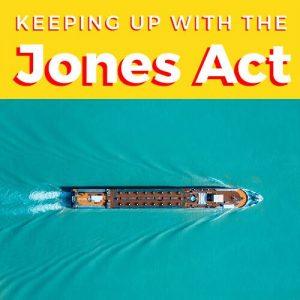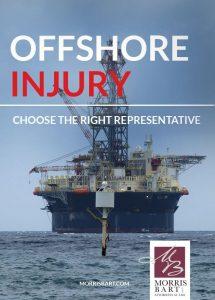
If you were injured while working at sea, you might be able to make a claim under the Jones Act. This Act gives injured seamen a legal avenue to recover compensation for medical expenses and other damages that result from on-the-job injuries. The importance of the Jones Act lies in the fact that most people who work on maritime vessels do not qualify for workers’ compensation under any state’s laws.
In addition to compensation for healthcare bills, injured seamen may also qualify for lost earnings. The claimant could recover compensation for past lost earnings, future lost earnings, and the loss of earning capacity. However, calculating lost income after an offshore injury can be complicated.
Recovering Lost Earnings Under the Jones Act
According to the Legal Information Institute, a seaman injured in the course of employment has a right to trial by jury against the employer. During this process, the injured mariner may be able to claim earnings that they lost or are losing. They can also claim future loss of earnings due to a long-term injury.
The claim may include compensation for future benefits such as vacation time, health insurance, pension, and 401(k) contributions. The claimant may have to calculate past lost earnings, future lost earnings, and diminished earning capacity. This calculation requires complicated formulas, often making it wise to consult an accident lawyer familiar with Jones Act claims.
Past Loss of Earnings
Calculating past lost earnings is a straightforward process. Generally, the seaman must add all the income and employment benefits that they did not receive due to not working while they received treatment for their injury or illness, or their symptoms kept them away from work.
This total includes their annual salary and any fringe benefits, such as insurance premiums and retirement contributions.
If necessary, an attorney may determine their likely missed wages based on income from the previous year or projected income missed during that time. For example, some jobs do not pay the same share each season. Therefore, a lawyer may need to determine the cut per man for their client’s missed time or use the numbers from a previous season.
Future Loss of Earnings
Calculating lost earning capacity and future lost earnings is a more complex process. Your injury lawyer may elect to hire an economist to calculate the various losses. In general, the economist will look at your yearly salary and benefits at the time of the accident. They will then calculate how much less you will be able to earn because of the injury.
If you are unlikely to return to your previous position, you could work another job for less money despite your impairments. In some cases, you may not be able to rejoin the workforce at all. In this case, your future earning capacity is $0.
The difference between these two figures, calculated over the remainder of your work-life expectancy, will represent your lost earning capacity. Therefore, the next step is establishing your work-life expectancy, representing how many more years you will work. According to the Journal of Forensic Economics, the federal government usually determines work-life expectancy based on government statistics and criteria, including sex, age, race, and education.
For a free legal consultation, call 800-537-8185
Other Ways a Jones Act Attorney Can Help With Your Compensation Claim
Working on an oceangoing vessel has its inherent dangers. However, boat owners and employers often mitigate the risks by providing the necessary:
- Boat maintenance
- Tools for the job
- Personal protective equipment
- Training
- Other safety gear
Vessel owners and operators have a legal duty to keep their workers safe, whether in port or at sea. If they fail to do so and a seafarer suffers an injury or illness, the stricken worker could hold them liable for their negligence. The worker’s damages could include:
- Medical bills for injury treatment
- Ongoing care and costs for future medical needs
- Lost wages
- Diminished earning capacity
- Pain and suffering
- Other non-economic losses
Protecting your rights and proving your compensation claim may be especially difficult as you undergo treatment, face lasting injuries, or have healed and headed back to sea. However, letting a Jones Act lawyer navigate this process for you is often the easiest, quickest, and most effective way to hold the at-fault parties responsible and recover monetary damages such as care costs and lost earnings.
Speak to a Jones Act Lawyer from Morris Bart, LLC for Free Today
Recovering compensation from an injury claim under the Jones Act is a legally complicated process. You might find it especially challenging to calculate your lost earnings after an offshore injury, especially for the loss of future earning capacity. You might benefit from working with a Jones Act accident lawyer who can evaluate your case and help you avoid mistakes during the claims process.
The Morris Bart law firm serves clients who work in the Gulf of Mexico off Louisiana, Mississippi, and Alabama. Schedule a consultation with one of our attorneys today.
Questions?Call 800-537-8185
to find a Morris Bart office near you.





